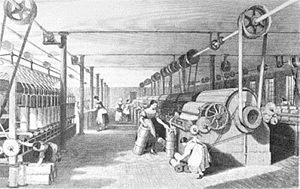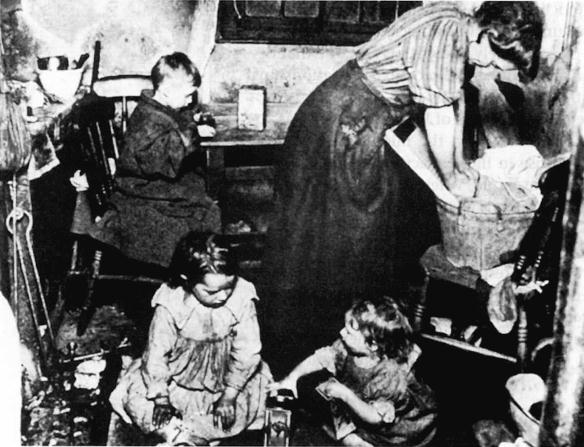
The Industrial Revolution - The Rise of Industry in Europe
Lecture Notes from Mr. Kersey's 7th Grade Geography, History, and Culture Class)
Changes in Production
- Until about the late 1700ís products were made in peopleís homes or in small shops.

- Then, machines began to be invented that could make goods quickly and cheaply.
- Soon large factories began to appear.
- Many people began to take jobs in these factories.
- It wasnít long before people started to move from the country to the cities.
- The first factories were for making textiles, or cloth products.
- Soon machines were invented for making other goods like tools.
- Because stuff could be made more quickly and for less money, business people and factory owners made loads of money.
Changes in Society
- The Industrial Revolution wasnít all good. There were some problems too.
- As more and more people moved to the cities to work in the factories, cities grew very quickly. This is called urbanization.
- Living conditions became overcrowded, cramped, and dirty.

- Because of the poor living conditions, disease became a problem within the cities.
- In the beginning of the Industrial Revolution workers had no rights.
- Factory owners took advantage of the workers.
- Owners only wanted to make money.
- Wages were very low, and if a worker didnít like it, there was always someone to take his place.
- Factory conditions were horrible and very unsafe.
- They were dirty, hot, and poorly lit.
- Many workers were injured.
- It wasnít until the 1900ís that laws began to get passed that would protect workers.
Changes in Government
- Because countries were now producing so many goods, they needed new places to sell their goods.
- During the 1800ís many European governments began taking over other weaker countries and turning them into colonies.
- Colonies were places to sell all the products the European countries were making.
- Colonies were also good sources of raw materials.
- This period became known as the Age of Imperialism.





